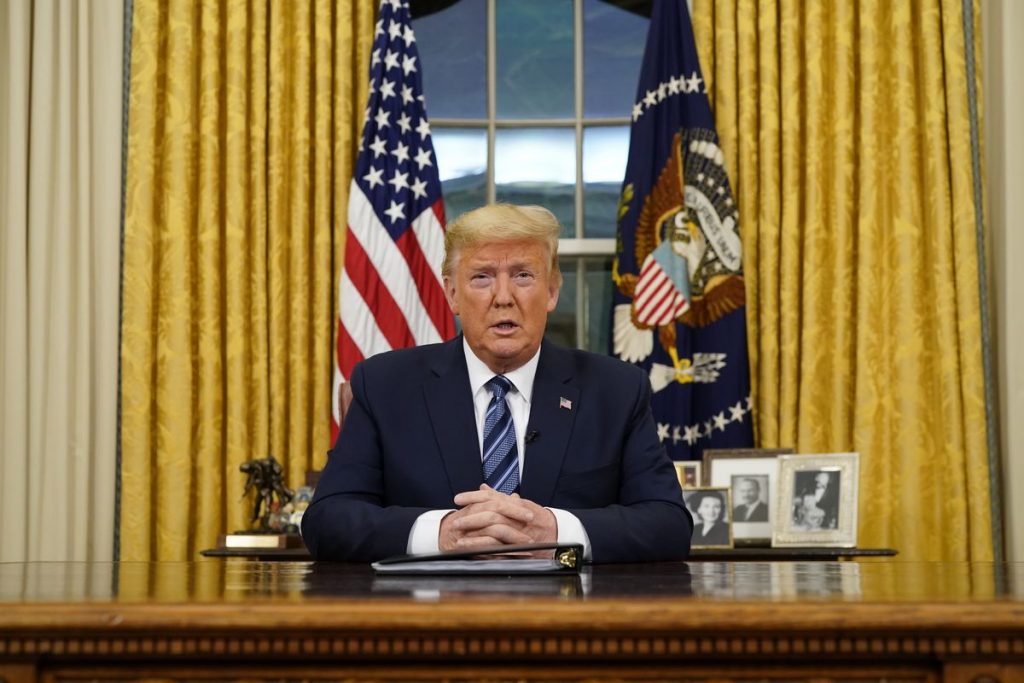
- ARAB NEWS
- 18 Jul 2025

Countries in the Middle East and beyond are shutting down as they react to an unprecedented global threat: That of the novel coronavirus pandemic that has claimed thousands of lives since it first broke out in China late last year. Saudi Arabia, Jordan, Kuwait, Bahrain, the UAE and Lebanon are all in partial or full lockdown. Stringent measures are being adopted to stem the tide of new infections and attempt to contain the spread. It goes without saying that these measures will have short, medium and long-term effects on the economies of individual countries, the region and the world.
The coronavirus is now the main story as it continues to spread in the Middle East and Europe; the latter becoming the new center of the disease as China appears to have finally contained it. Governments are scurrying to promote social distancing as they aim to “flatten the curve” by reducing the number of new infections. That means closing down shopping malls, restaurants, gyms, schools and universities, and government offices, while calling on people to avoid crowds and stay at home. International flights have been suspended by Saudi Arabia, Kuwait, Jordan and Israel. How long such measures stay in effect is the key question. The longer the shutdown, the bigger the economic impact; and already there are predictions about an impending global recession.
Various reactions to the pandemic have underlined governments’ abilities to deal with a national emergency. Saudi Arabia was quick to respond effectively and strongly as soon as cases were reported. It took unprecedented measures to protect the public by suspending mass prayers at Makkah’s Grand Mosque and by closing its land borders, before stopping all international flights. Similar steps were taken by other Gulf governments.
In contrast, the Iranian authorities were slow to react, as the virus spread from Qom to other cities and provinces. By wasting valuable time and allowing politics to influence the taking of the necessary precautionary steps, it became the regional center of the outbreak, which then spread to most Gulf countries and Iraq. On Monday, the Iranian authorities reported 129 new deaths — its biggest single-day jump in fatalities — to bring the total number to 853, with nearly 15,000 confirmed cases. An official leading Iran’s response to the coronavirus acknowledged on Sunday that the pandemic could overwhelm health facilities.
Notwithstanding the fact that Iran is suffering under tough US sanctions, its failure to address the outbreak in time has increased public distrust of a system that invests precious resources in proxy wars outside the country. The crisis has become the latest major challenge to Supreme Leader Ali Khamenei, who initially downplayed the coronavirus threat, and the unpopular government of Hassan Rouhani.
In Israel, which was quick to take precautionary measures against the outbreak, it was politics as usual as beleaguered Prime Minister Benjamin Netanyahu was fighting for his political survival in the wake of the latest Knesset elections. He used the coronavirus outbreak to call on his main rival, Benny Gantz, to join him in a national unity government. But he refused to have anything to do with the Arab Joint List, which has emerged as the third-largest bloc with 15 seats. He also used the outbreak to push the date of his trial by at least two months.
Then, in a historic gesture, the entire Arab Joint List lent its backing to Gantz’s Blue and White bloc. Along with Avigdor Lieberman’s support and that of the left, this meant that Gantz had the magic 62 seats and the mandate to form a government. For now, it appears that Netanyahu’s controversial career has finally come to an end; with the coronavirus symbolically claiming him as a victim.
Iran’s failure to address the outbreak in time has increased public distrust of a system that invests precious resources in proxy wars.
Osama Al-Sharif
The coronavirus may also claim another victim: US President Donald Trump, who saw the global outbreak, which he callously called a “new Democratic hoax,” result in a major crash of the stock market. By the time he declared a national emergency last week, the US had lost at least two months of precious time to adopt measures to rein in the spread of the virus. His mishandling of the crisis has weakened his position among voters, especially as parts of the country went into lockdown, affecting businesses and the stock market. The fact that election rallies have been called off for now will also deny him his most important podium from which to reach and mobilize his supporters.
In a globalized world, pandemics — just like climate change and commercial interdependency — will test individual governments’ abilities and preparedness. Hopefully, once the coronavirus is contained, governments will share their experiences and learn from each other. More importantly, they must come together to mitigate the effects of a likely global recession that will hurt vulnerable economies.
Osama Al-Sharif is a journalist and political commentator based in Amman. Twitter: @plato010